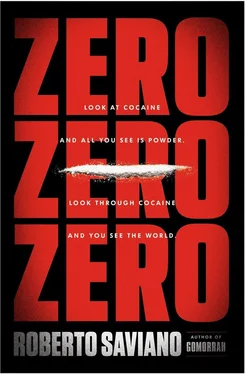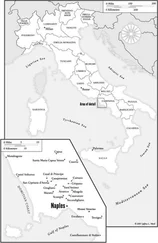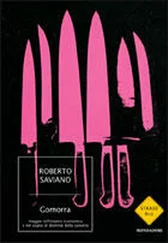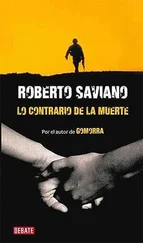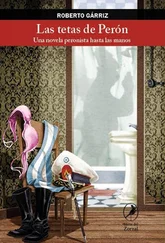“He’s crazy!” “Reckless!” “Out of his mind!” Words thrown to the wind, which Christian Poveda fights with other words. “Most maras members are victims of society, of our society,” Poveda says. Because society and the state find it easier to point a finger at their violence, which is so recognizable, rather than to offer opportunities. Maras members look like the dregs of society, like trash; they’re revolting. It’s easy to consider them public enemy number one. Easy to underestimate them. But Poveda’s work dismantles such attitudes.
This is the ultimate meaning of Christian’s work. Behind the door of the violence flaunted by the gangs he saw an inaccessible path that leads right to the root of the problem. To get a byline in the newspapers or his name on the opening credits of a documentary it would have been enough simply to affix evil to celluloid, and to speculate a bit. But Christian decides to get to the bottom of things. He wants to truly understand.
On September 2, 2009, Christian Poveda’s body is found next to his car, between Soyapango and Tonacatepeque, a rural area north of the capital of El Salvador, with four bullets to the head. His film equipment is lying next to him; it has not been touched. “I told him.” “He got what he deserved.” “At any rate, he went too far.” So say the same old voices over his dead body.
In 2011, eleven people, all Mara 18 members, are arrested and convicted of the murder of Christian Poveda. José Alejandro Melara and Luis Roberto Vásquez Romero are sentenced to thirty years for planning and carrying out the homicide; a third person, a woman, is sentenced to twenty years as an accomplice. Other gang members have to spend four years behind bars for covering up the crime. In August 2013 three more mareros are sentenced to ten years for conspiracy to commit murder: They took part in the meeting at which Poveda’s death was planned.
Christian was sure he wasn’t taking any risks. He had entered into the community of the maras, into their lives. He felt he’d found a sure, safe way in and thought he’d made friends with many of them. But it’s a fantasy to think you’re ever safe when you’re covering a criminal organization.
In Christian’s story, bad luck plays a role as well. It seems, in fact, that Juan Napoleón Espinoza Pérez, a former police officer, met a Mara 18 member while under the influence of alcohol and told him that Poveda was an informer, that he had turned his videos over to the Soyapango police. So the gang gathers, and after three long meetings in the El Arbejal farm in Tonacatepeque, decides to condemn Poveda to death.
There are lots of rumors about those meetings, whole orchestras of whispers, symphonies of accusations. Some mara members defend Christian, saying he is honest, that he did a good thing telling about the maras from their point of view. Others are envious: He’ll get rich by looking like the good guy against us bad guys. The women defend him. A lot. Or so it seems. The most authoritative members, those who had agreed to be filmed, are frightened by the documentary’s success. Too many people are talking about it. It makes its way to the web. So maybe that cop Espinoza wasn’t lying, maybe Christian did sell the video to the police. But the sense is that anyone who says too much about the maras, anyone who has in a certain sense taken advantage of them, has to be punished.
On August 30, 2009, the group decides to kill Christian. At the time he’s acting as an intermediary for a French journalist who writes for Elle magazine and wants to interview some of the girls in the gang. For the first time his contacts ask him for a fee, ten thousand dollars. Even though Christian doesn’t like it, he accepts. The magazine has the money and can afford to pay. Christian meets Vásquez Romero in El Rosario. But a little after noon Vásquez Romero gets behind the wheel of a gray Nissan Pathfinder 4 x 4 and drives Christian onto the bridge over the Las Cañas River. That’s where they kill him. I can’t imagine those final seconds. I’ve tried. Did Christian realize, even for a moment, that it was a trap? Did he try to defend himself, to explain that killing him was unjust? Or did they shoot him in the back of the head, like cowards? A moment. They must have pretended to be getting out of the car, and in that moment when Christian lifts the handle to open the door they must have fired. I don’t know; I’ll never know. But I can’t keep from asking myself these things.
If the ex — police officer hadn’t been drunk that day, if he hadn’t told a bunch of lies, would Christian still be alive? Maybe. Maybe not. Maybe they would have eliminated him just the same, because some of the gang members were unhappy with how Christian had portrayed them in his film. Despite his assurances that the documentary would not be released in El Salvador, some pirated versions were making the rounds. Maybe they would have killed him anyway, because the new generation of Mara 18 leadership was even more violent and ferocious than the previous one. According to Carole Solive, Christian’s French producer, his mistake was to stay on in El Salvador after he’d finished shooting. Maybe he’d come to know too much about the negotiations between Salvatrucha and 18, two rival bands that were trying to reach an understanding, and that knowledge condemned him to death. No matter how much he trusted those kids Christian never forgot to take certain basic safety precautions. He had a cell phone that he used only to contact maras members. But it wasn’t enough.
Christian Poveda believed in the power of images to influence events. That’s why he worked as a photojournalist and documentary filmmaker. He devoted all his efforts to chronicling extraordinary political and social situations, making sixteen documentaries that were well received at the world’s most prestigious film festivals. I often look for La vida loca when I’m in a bookstore, or when I go to someone’s home, in the stacks of DVDs next to the TV. I almost never find it. What did you die for, Christian? The question rises up in me like some melodramatic lullaby. What did you die for? Would your life have made more sense if that documentary were in every home? I don’t think so. No work of art can make sense of or justify death with a gun to your head. Your last words are more eloquent than any epigraph could be: “Government authorities have no idea of the monster facing them. Now the 18 is full of crazy people. I am very worried… and sad.”
Writing about cocaine is not so different from using it. You always want more — more news, more information — and the stuff you do find is so potent you can’t live without it. It’s addicting. These stories, even when they conform to an overarching plot you’ve already grasped, continue to fascinate in their particulars. And they stick in your head until another one — incredible but true — takes its place. You see that your stimulation threshold is on the rise, and you pray you don’t ever go into withdrawal. Which is why I keep collecting stories ad nauseam, more than are needed; I can’t bring myself to stop. One evening, long before El Chapo’s actual capture, I got a phone call from Guatemala with the news that he was killed in a shootout. I didn’t know whether to believe it or not; it wouldn’t be the first time that false information about drug lords was circulated. Still, these bits of information roar in my ear. But relatively few others hear the noise. The further I descend into these infernal circles whitewashed with cocaine, the more I realize how much people don’t know. There’s a river that runs under big cities, a river that starts in South America, flows through Africa, and spreads everywhere. Men and women stroll down Rome’s via del Corso, along Parisian boulevards, meet up in Times Square, walk with heads lowered along London streets. Don’t they hear anything? How can they stand all this noise?
Читать дальше
